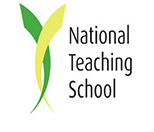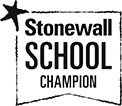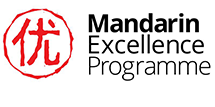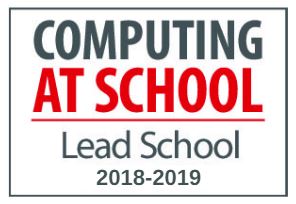Safeguarding
Fortismere safeguarding statement of intent
Fortismere School is fully committed to safeguarding and promoting the welfare and safety of all students and expects all staff, volunteers and members of the school community to share this commitment.
We will ensure our policies and procedures for safeguarding children are up-to-date and in line with Keeping Children Safe in Education. Our policies are accessible to all through the website and regularly reviewed by the Senior Leadership Team and the Governing Board.
We will meet all statutory requirements in relation to safer recruitment and checking of staff prior to employment and provide appropriate support and safeguarding training for all staff. We will have a designated safeguarding lead and trained deputies and a designated safeguarding link governor.
We will develop a culture of listening to students and taking account of their feelings and wishes and teach them about keeping themselves safe, including safety online.
Our Safeguarding Team
Our Designated Safeguarding Lead (DSL) is Ms Kirsten Sullivan supported by two Deputy Designated Safeguarding Leads (DDSL) and team members. Our Safeguarding Link Governor is Pat Dugdale.
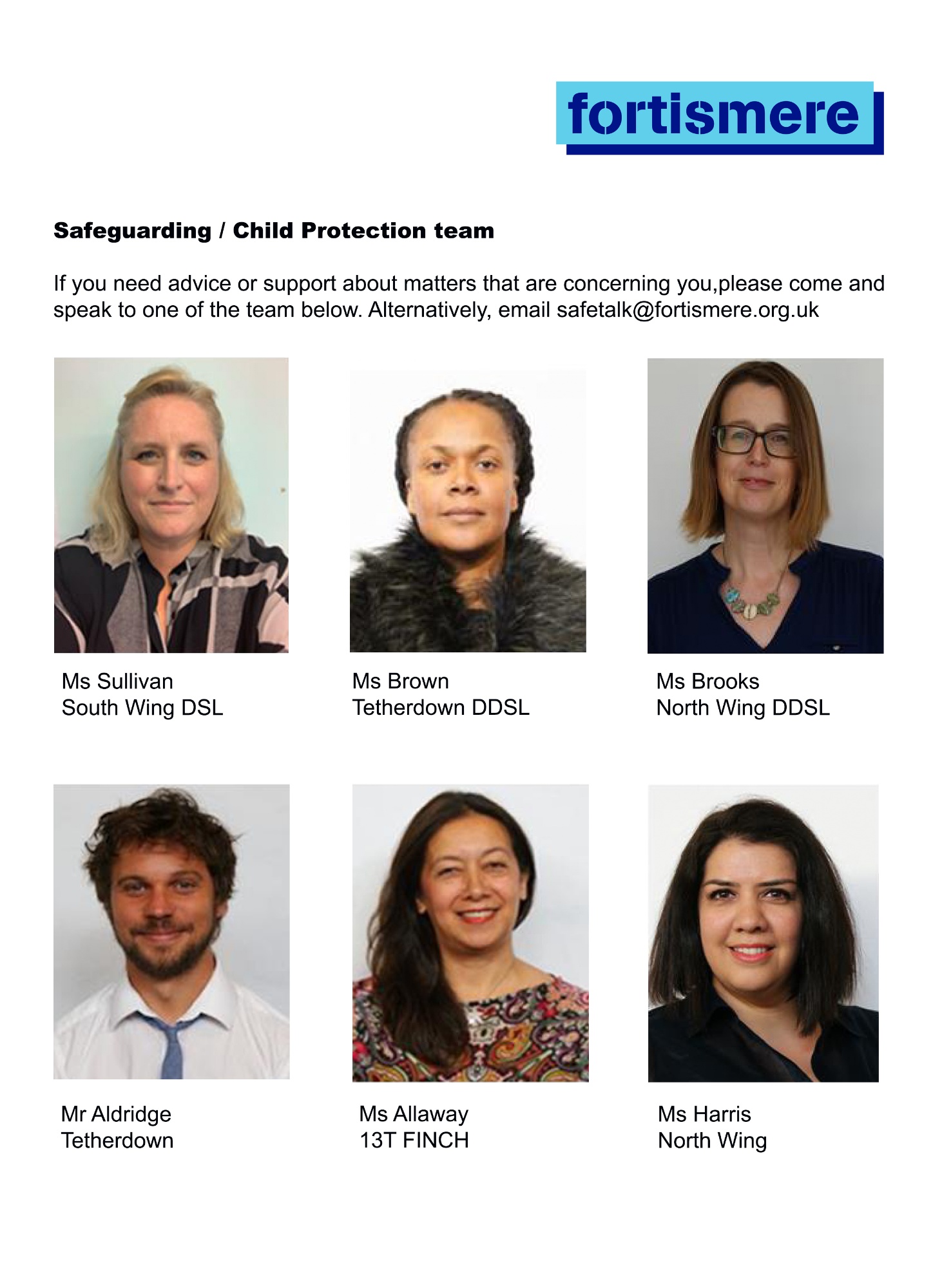
What is Safeguarding?
Safeguarding is the action that is taken to promote the welfare of children and protect them from harm. Safeguarding means:
- Protecting children from abuse and maltreatment
- Preventing harm to children's health or development
- Ensuring children grow up with the provision of safe and effective care.
What does Safeguarding cover?
Safeguarding covers numerous topics, many of which are interconnected, including:
- Bullying
- Children Missing from Education
- Peer-on-peer abuse
- Child Criminal and Sexual Exploitation
- Domestic violence
- Sexual abuse and harassment
- Mental health and wellbeing
- Self-harm
- Neglect
- Prevent (Preventing Violent Extremism)
- Substance Misuse
- Violence Against Women and Girls (including FGM)
- Online Safety
Who is responsible for Safeguarding?
Everyone has a responsibility to keep children and young people safe.
All organisations that come into contact with children must have specific safeguarding policies and procedures in place. This includes voluntary and community organisations, faith groups, private sector providers, as well as schools, hospitals and sports clubs.
Safeguarding at Fortismere
Fortismere takes its safeguarding responsibilities extremely seriously. Our current Safeguarding & Child Protection policy and related safeguarding policies are all available in the Policies section of our website.
Students are able to talk to any member of staff about concerns they may have. Posters are displayed around the school that show our Safeguarding and Child Protection Team, so students know where staff are located. Students and parents can also email: safetalk@fortismere.org.uk at any time.
Online Safety is embedded within all aspects of school life at Fortismere - this Online Safety page and our Online Safety policy set out the school's approach.
In the sections further down this page we have assembled a range of information on safeguarding issues that may be helpful to the school community. Please have a look at these resources and websites.
In response to the concerns raised on the Everyone’s Invited website, and after the murder of Sarah Everard, we have reviewed both our formal and pastoral curriculum to ensure that our students are educated in an age appropriate way that raises awareness of issues and challenges behaviours.
The staff and governing body of Fortismere are clear that we will not tolerate any form of sexual harassment and sexual violence. We will not allow our students to believe that sexual abuse of any kind is an inevitable feature of growing up, or of society itself.
We will continue to listen to the experiences of our students and staff to support us in creating a culture of equality and tolerance; one where we are all equipped to challenge harassment of any kind.
MULTI-AGENCY WORKING & HARINGEY Local authority
The school works closely with Haringey Local Authority to provide a coordinated response to promote children’s welfare and protect them from harm. This includes involvement in Early Help and multi-agency safeguarding hub (MASH) plans and meetings.
Haringey has recently published a guide for families and young people Information on a Child and Family Assessment on the assessments that may take place if your child is referred to MASH (the multi-agency safeguarding hub). A MASH referral can sound daunting but the guide explains the processes involved and the types of information gathered and by whom. The guide also has links to the Early Help support that is available to families in Haringey to ensure young people’s needs are met.
QUESTIONS ABOUT SAFEGUARDING
If you have any questions about safeguarding please feel free to contact safetalk@fortismere.org.uk
Information on Self-Harm
We think that the organisations below provide really useful information on this issue.
The following is a presentation which was given to parents in 2020: How to support your child: Self Harm
Adolescent Mental Health & Wellbeing
Richard Moore from the Charlie Waller Memorial Trust gave an informative presentation to a large audience of parents/carers on the topic of student mental health. The slides from his presentation can be found here
We held an event for parents/carers on communicating with teens. Alison Havey and Deana Puccio, writers of the book Sex, Likes & Social Media: Talking To Our Teens In The Digital Age led the event. They have provided a useful information sheet which signposts to other resources which you may find useful.
Young Minds has a very useful website for young people and parents/carers. It offers a wealth of information, advice and ways to get further support.
Awareness and Prevention of Rape/Sexual Assault and Sexual Health information
The school provides a range of information on this topic, starting with the Raising Awareness and Prevention project workshops for Year 10. The RAP workshops have been carefully designed to equip teenage girls and boys between the ages of 13-18 with the tools to avoid becoming a victim of rape and sexual assault. These presentations are not about physical self-defence, sex and relationship education nor about intimidating teenagers but are about empowering them with the common sense skills to be able to take care of themselves and each other. The RAP Project uses real life cases, law, statistics and guidelines. Issues relating to consent, online pornography and social media are also addressed. You can find out more about the RAP Project here.
As part of our Sexual Relationships Education programme, we work with Safer London who have produced this leaflet highlighting issues around Child Sexual Exploitation.
The following link supports students in understanding the issue of Consent: www.consentiseverything.com/
These organisations offer further information and advice:
Haringey LA provides information and advice on Sexual Health for young people under the age of 25 - see the website here
Information on Radicalisation and Extremism
We have all seen articles in the media about the risk to young people of radicalisation, extremism and how, in rare cases, that can lead to involvement in terrorism. We work closely with a range of agencies to keep abreast of the latest information and guidance on this complex issue. You may find these websites useful if you have any concerns or questions:
General Safeguarding Information
Here are some general documents that you may find helpful:
DfE Statutory Guidance on Keeping Children Safe in Education
Government Guidance for Professionals What To Do if You're Worried a Child is being Abused
Government Guidance on Working Together to Safeguard Children
Young People's Version of Government Guidance on Working Together to Safeguard Children
Online safety for 11-18 year olds from CEOP This site offers advice on socialising online, online safety, getting support and sexual content online. CEOP is part of the National Crime Agency and is a trusted website for getting useful information and advice.
CEOPS (Child Exploitation and Online Protection)
This is a link to a wide range of articles on various topics for parents/carers and students. Simply scroll down and click on any of the articles that interest you. The list is always being updated by Parent Zone and CEOP.
Young Person’s guide to Safeguarding
This is a link to a PDF document on Young Person’s Guide to Working Together to Safeguard Children by the Office of the Children’s Rights Director.
Children's Commissioner for England
The Children's Commissioner promotes and protects the rights of children, especially the most vulnerable and stands up for their views and interests. The website contains a wide range of reports on issues relevant to children and their families.
This is a link to a Guide for parents on talking to your child about online sexual harassment produced in consultation with a group of young people aged 16-21 - Things I wish my Parents had known
Drugs and Alcohol Awareness
The school provides a range of information in PRE lessons on drugs and alcohol and the dangers associated with both. We are fortunate to have counsellors from Insight Platform (a drugs and alcohol charity) work with our students. Insight hold parent sessions giving information on local drug trends and how to speak to your children about drugs and alcohol. The following links will hopefully support understanding on drugs and alcohol for both parents and students:
Insight Information Session Jan 2023
